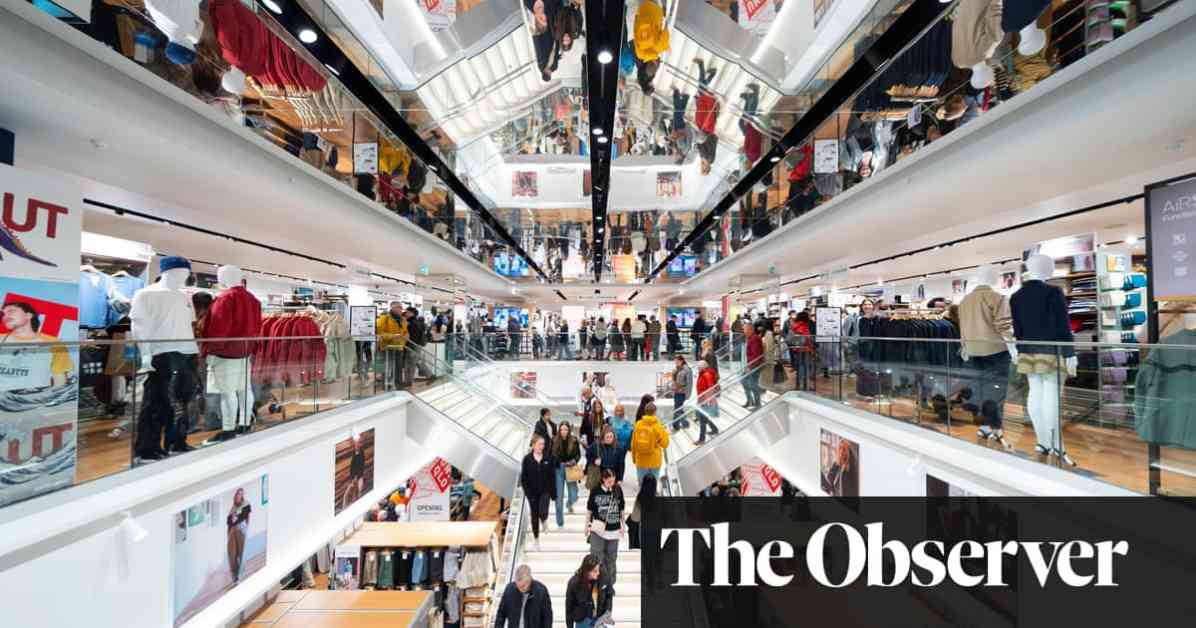Unfair Labor Practices: UK Retailers Hiring Young Workers Without Rights for Christmas
Unions have accused high-street retailers of drafting in young gig economy store assistants without basic employment rights in the run-up to Christmas. The Observer has found large brands, including Urban Outfitters, Lush, Gymshark, and Uniqlo, are recruiting “freelance” shop assistants through gig apps to staff their stores during the busy festive period. The apps are being promoted by youth influencers with hundreds of thousands of TikTok followers.
“This is a worrying new development,” said Tim Sharp, senior policy officer for employment rights at the Trades Union Congress (TUC). “It would seem absurd to most people that someone can do a job like working in a shop and not be entitled to basic legal protections. There is a big question mark over the employment status of these supposed freelancers.”
Traditionally, shops have brought in agency workers, who are entitled to basic employment rights such as holiday pay, the national minimum wage, and rest breaks, to cope with increased footfall in November and December. But some retailers are now hiring gig workers, who are not covered by most employment protections, as they are deemed in law to be their own boss. Many of the gig workers are sourced from app-based platforms such as YoungOnes and Temper, which have registered thousands of UK-based freelancers in recent years.
### Retailers Resorting to Gig Workers
Fashion chain Urban Outfitters offered to pay gig economy workers £12 an hour, just above the minimum wage of £11.44, but they need to apply each day for new shifts. Urban Outfitters, an international chain selling fashion apparel and lifestyle accessories, last week posted an advert on YoungOnes for “friendly young people” to work as freelance sales assistants in various locations.
Gymshark, the activewear brand, last week advertised for 30 freelance shop assistants for its main London store. The cosmetics chain Lush requested five freelance checkout staff during busy periods in Liverpool, and Uniqlo has been using the Temper app to source “hardworking and proactive sales assistants” to serve customers in Oxford and London.
### Concerns and Responses
The TUC said the gig shifts were in the interests of retailers, not workers, passing on risk from the business owner to the individual staff member. The government is planning to consult on a simpler two-part employment framework to differentiate between workers and the genuinely self-employed.
Emma Sleep and Uniqlo defended their use of freelancers, stating it aligns with legal standards and offers flexibility to workers. YoungOnes and Temper also assured compliance with UK law, emphasizing the freedom and autonomy they provide to self-employed professionals.
### Future Implications
The TUC warned that the loophole could be exploited by more businesses in the future, bypassing existing and new legal protections for workers. The government’s forthcoming employment rights legislation aims to prevent employers from denying people their rights by misclassifying them as self-employed.
In a world where gig work is on the rise, the implications of this trend for workers’ rights and protections are significant. As we navigate a changing labor landscape, it is crucial to ensure that all individuals are treated fairly and in compliance with employment laws, regardless of their employment status. Remember, behind every job is a person with rights that deserve to be respected and upheld.












